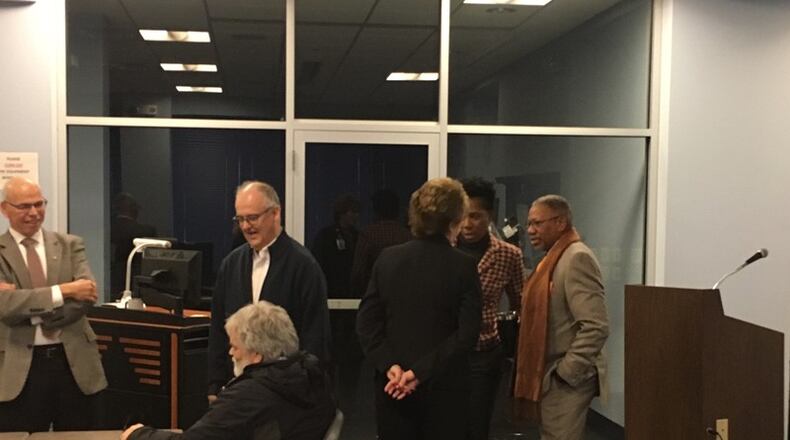Attorney Brian Wildermuth, representing Dayton’s school board, said the task force had only planned Tuesday’s tours — which were cut short on suggestion from the judge after Esrati filed a legal objection. Wildermuth said no further tours are planned, and emphasized the task force’s earlier statement that upcoming Feb. 20 and March 6 meetings will be open to the public.
EARLIER: Dayton schools task force halts tour of buildings
But Skelton asked Esrati and attorneys for the city and school board to file briefs by Monday on another issue — whether Ohio’s open meetings law gives the judge the power to issue an injunction to disband the task force altogether.
Esrati is representing himself in court, and Skelton spent much of Wednesday’s hearing trying to frame what Esrati’s claims were and what relief he sought from the court. At one point in the hour-plus hearing, he rattled off a list of what he wanted.
“The disbanding of this task force, the responsibility being put back with the school board, all of the meetings to be held in public and the remedies entitled to me under 121.22,” Esrati said. Ohio law, section 121.22, calls for $500 plus court costs to be awarded if an injunction is issued.
RELATED: Residents speak about fairness of potential West Dayton school closures
Esrati made multiple complaints about actions the school district and task force had taken in recent weeks and suggested there would be future violations of open meetings law. Skelton cautioned anyone against predicting what might happen in the future.
And Wildermuth repeatedly said the business before the court Wednesday was only to rule on the restraining order request, which he said was moot. He said attorneys for the school district and city — four were present at Wednesday’s hearing — needed time to respond to Esrati’s other arguments.
The task force was formed by city and school district officials after DPS cited very low enrollment at multiple schools as a reason to study closing a few schools.
EARLIER: Media questions prompt joint task force on Dayton schools to cancel meeting
The task force planned its initial meetings as being closed to the public. Cox Media Group contested that decision, and task force leadership later decided to hold its meetings in public. However, it limited access for Tuesday’s planned tour of three schools to task force and media members. The media planned to report on the tours, but agreed not to shoot video or photos inside the schools, on request from school officials, citing student privacy.
Esrati followed the school bus on its tour route, asking to be allowed to participate at each stop, with school district security officials denying him.
Esrati claims the task force is a “public body” as defined by statute, and that a gathering of members to tour buildings and have discussion legally constitutes a meeting of that body, and must be open to the public.
About the Author

